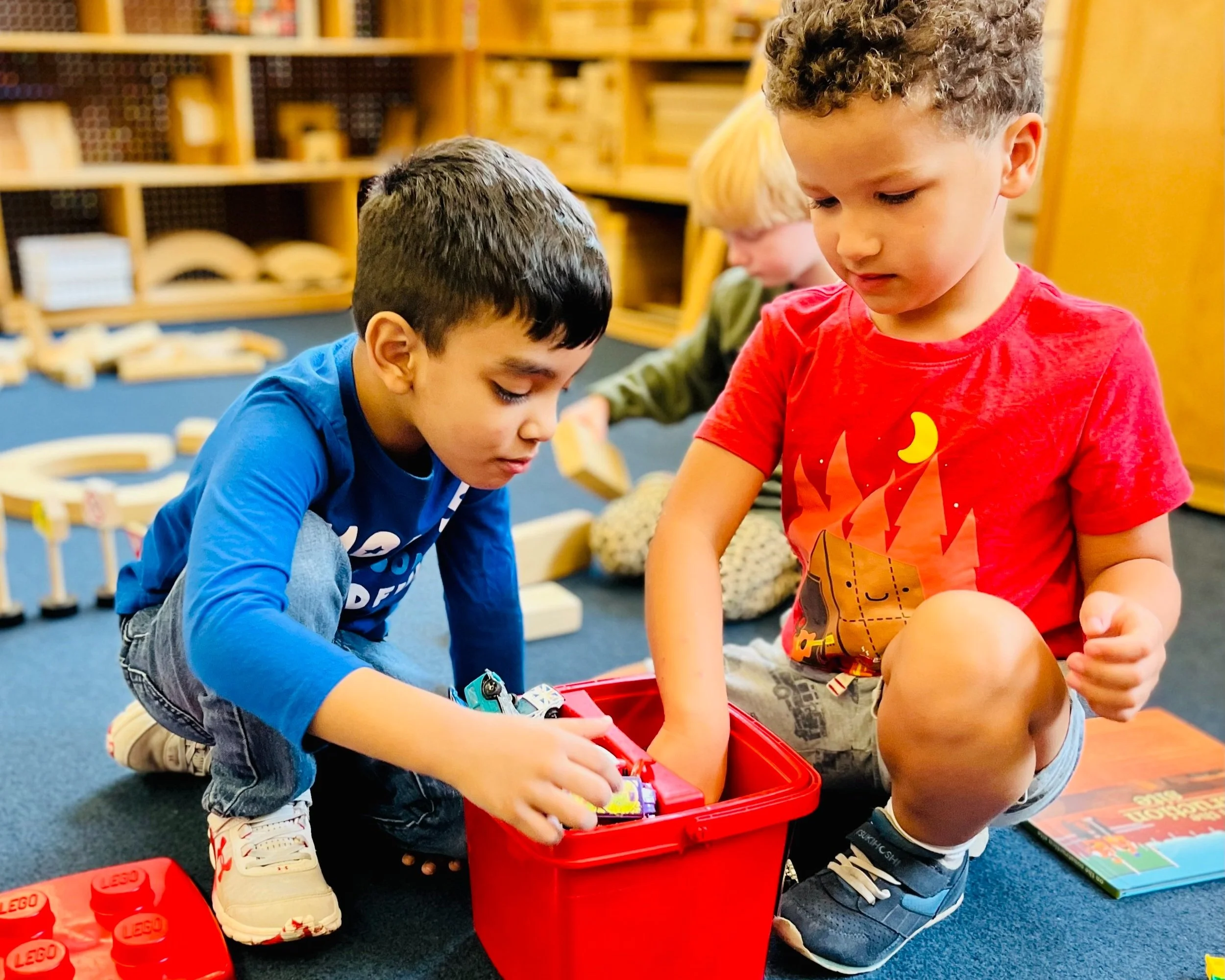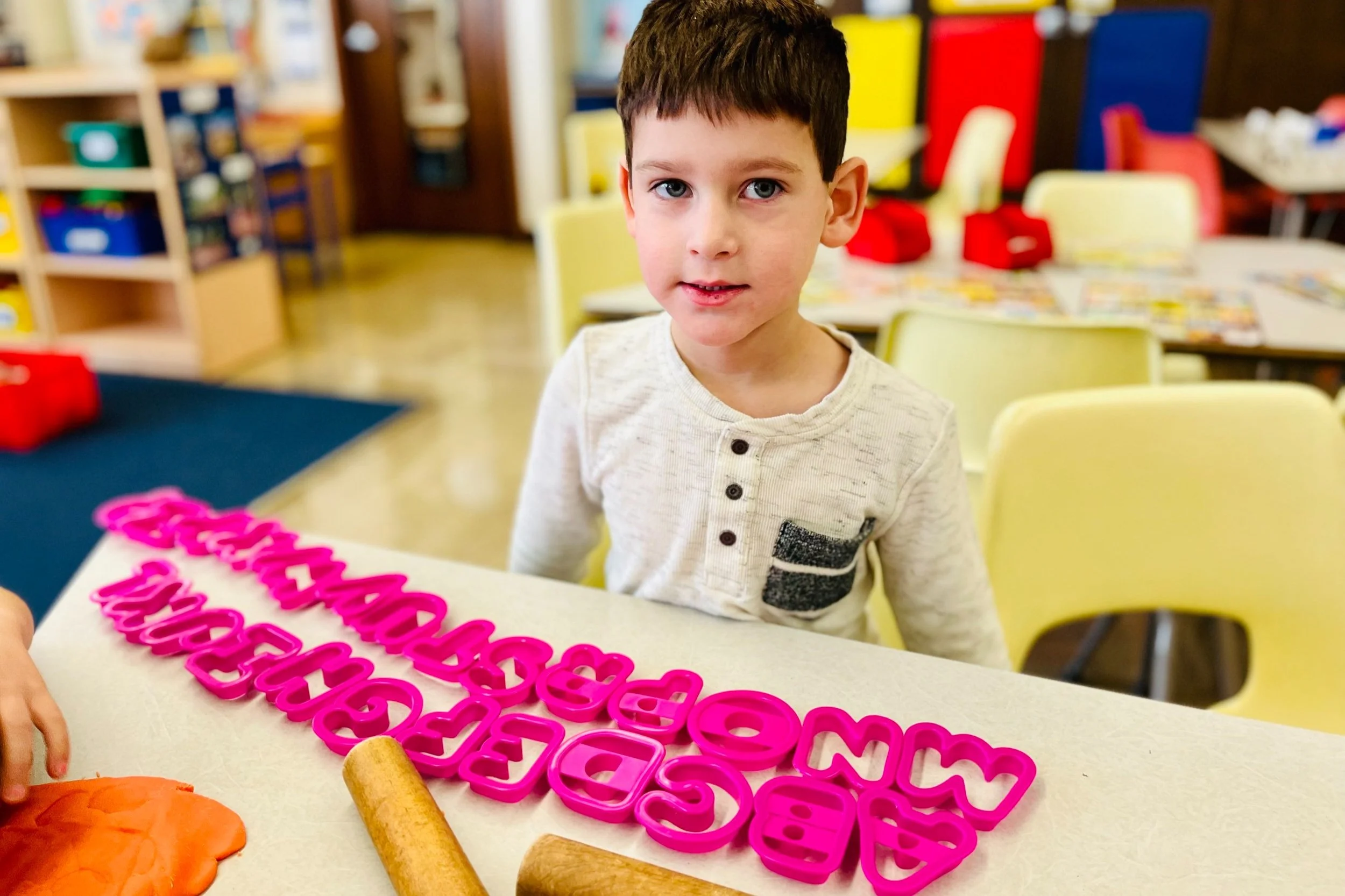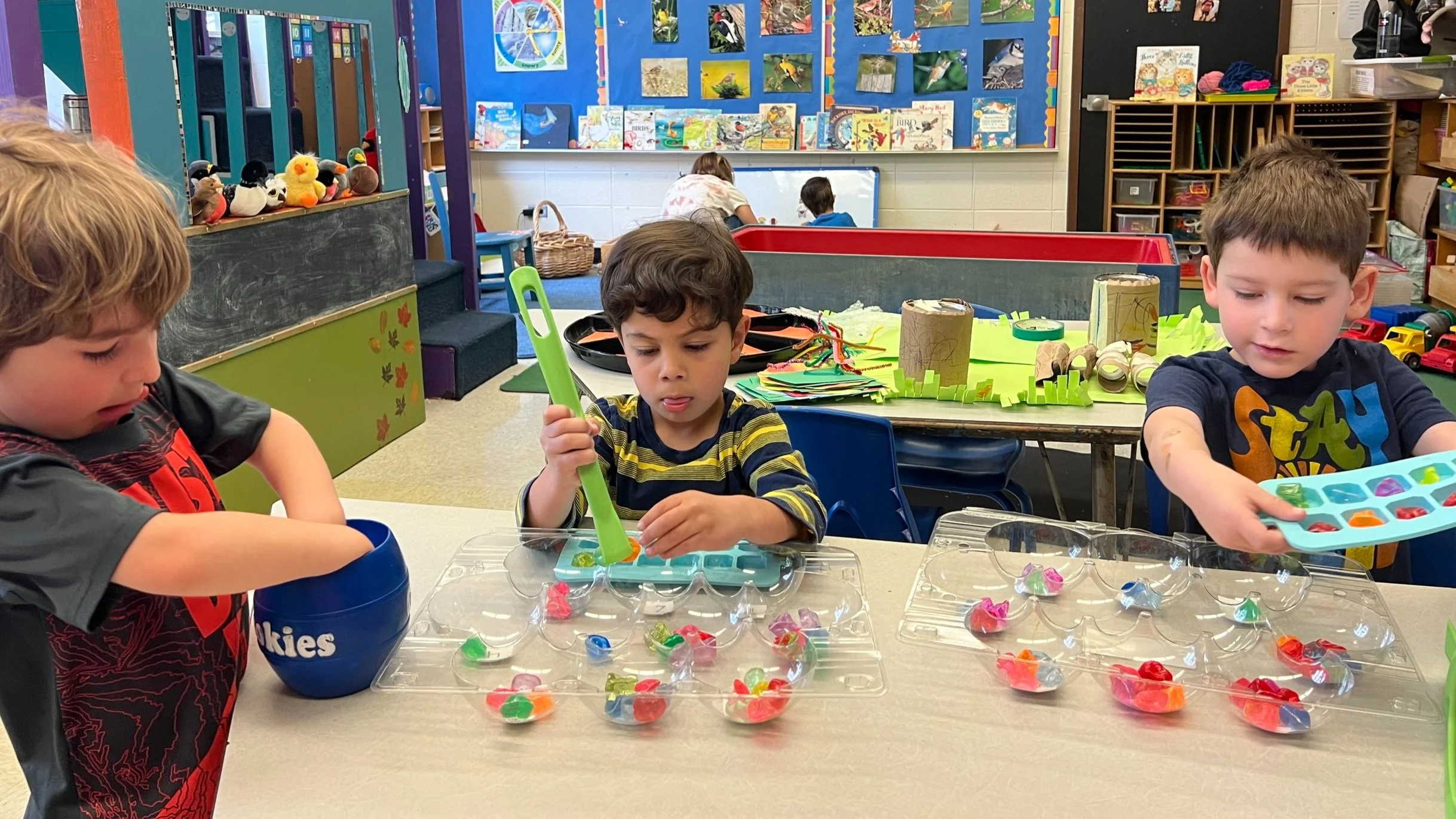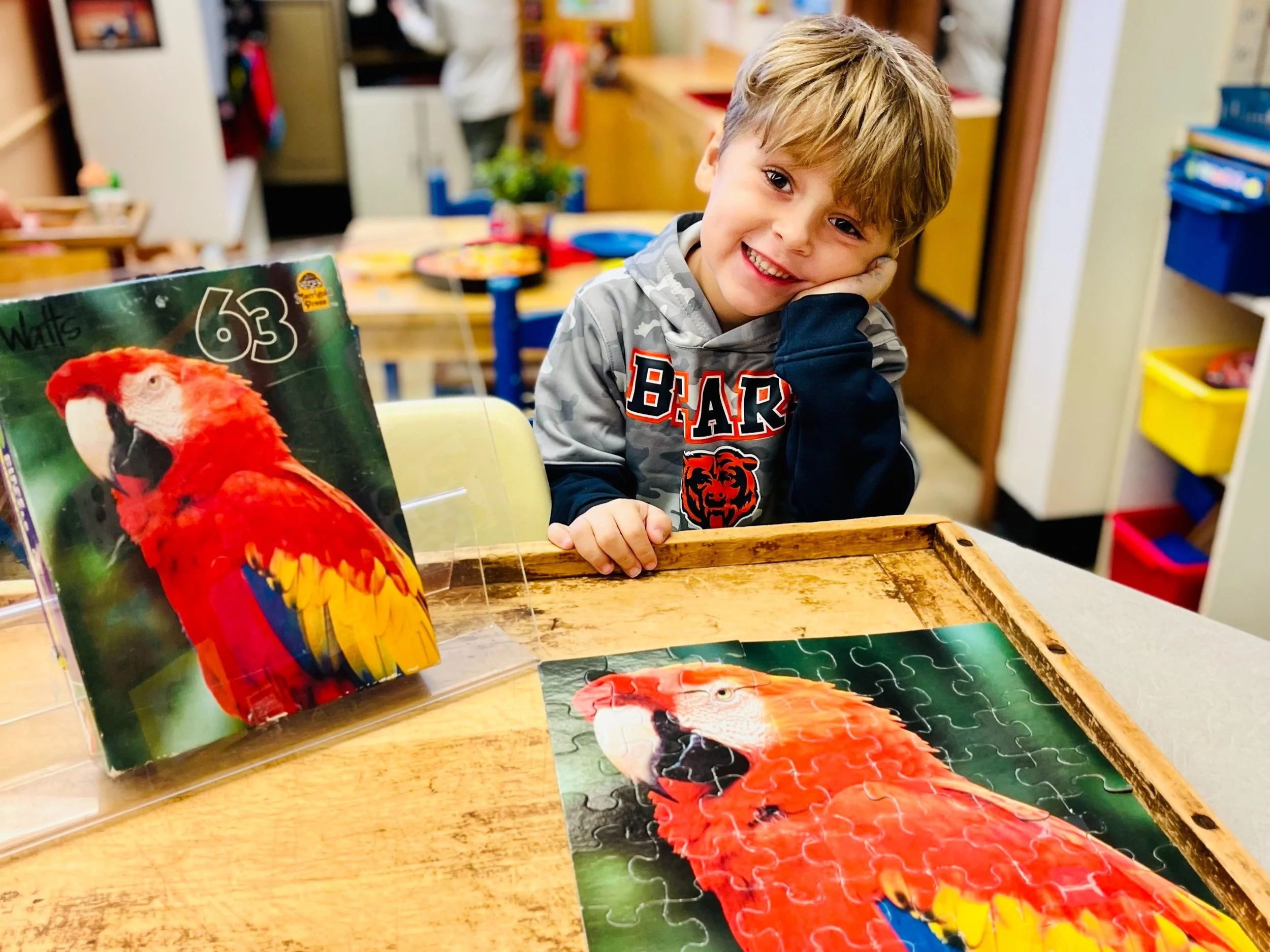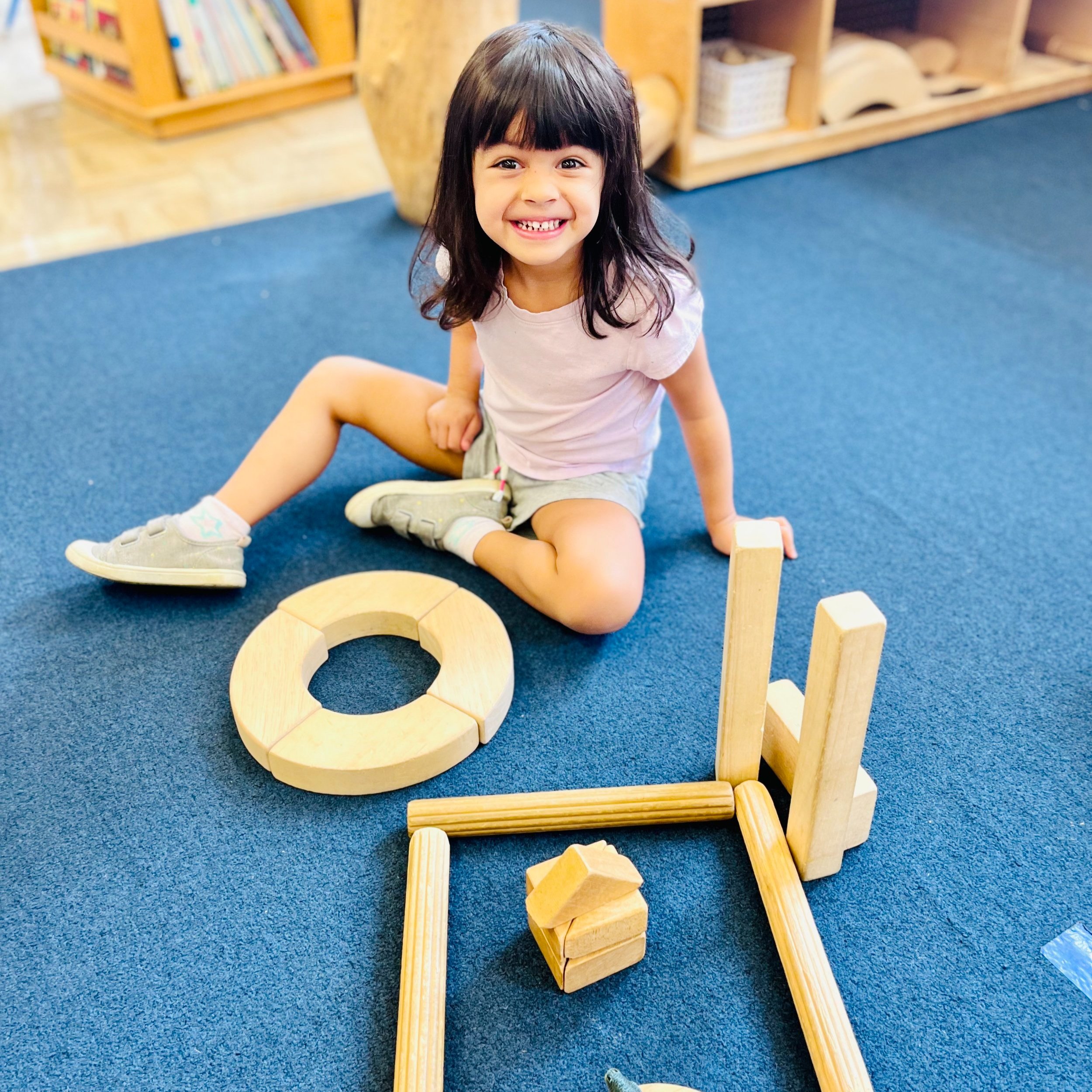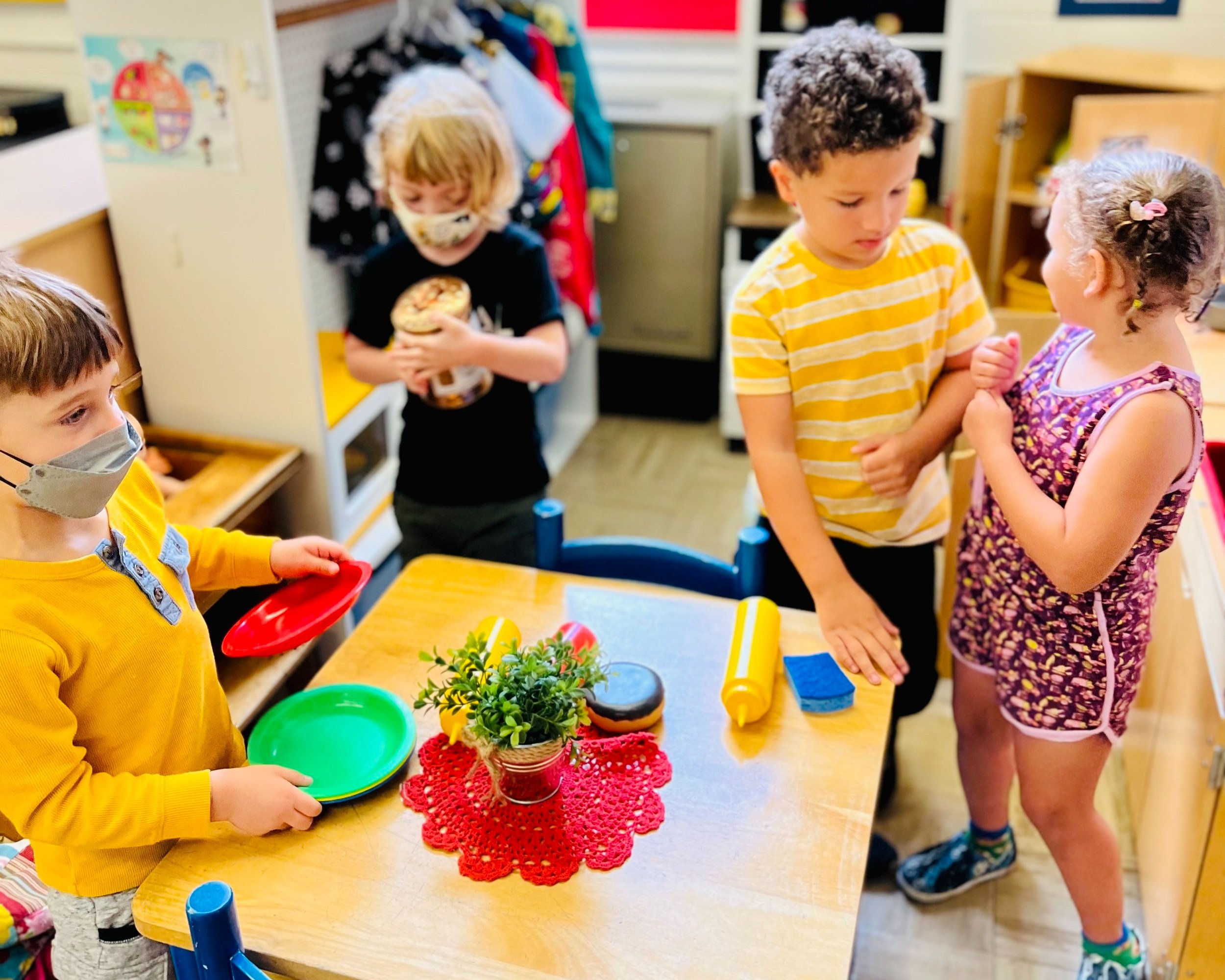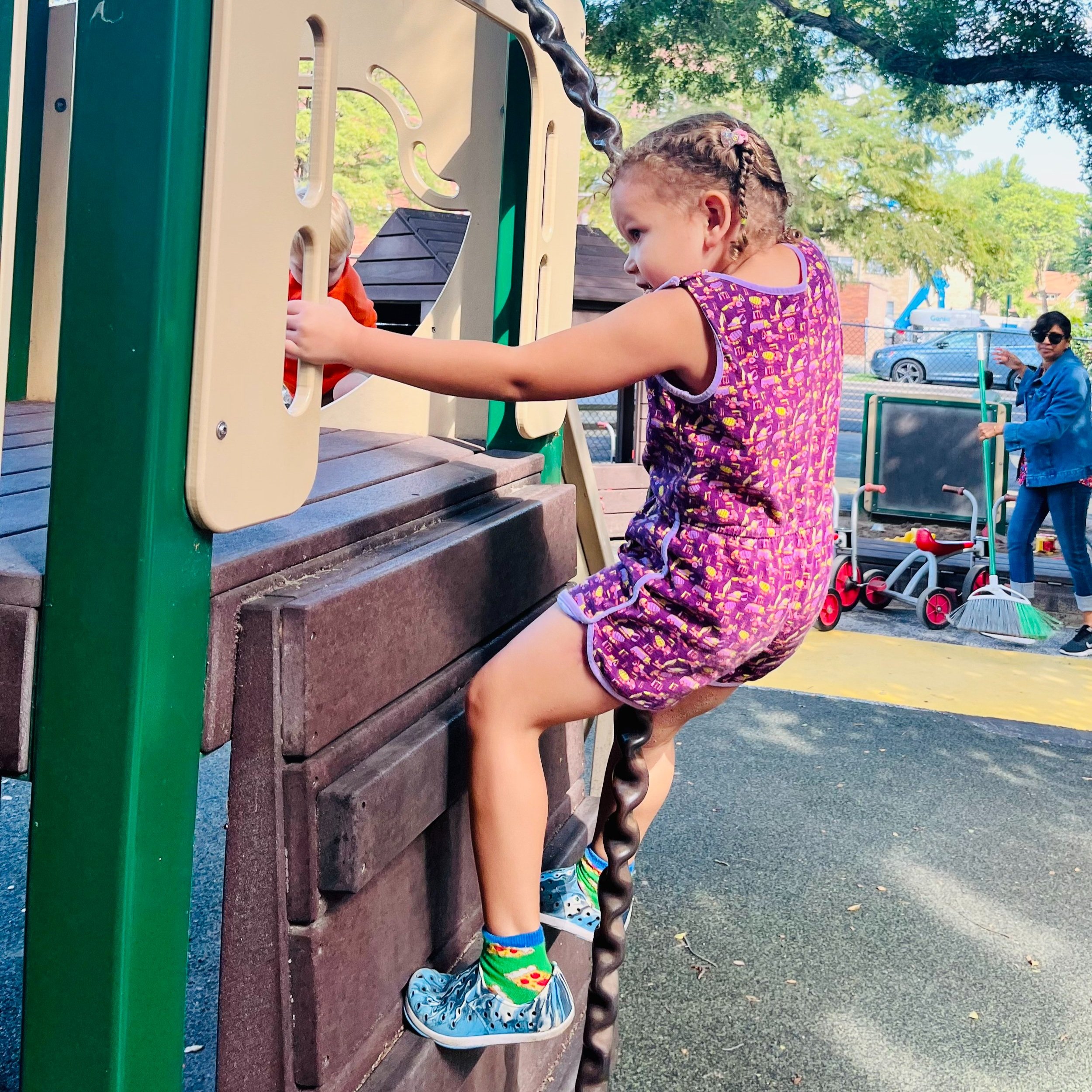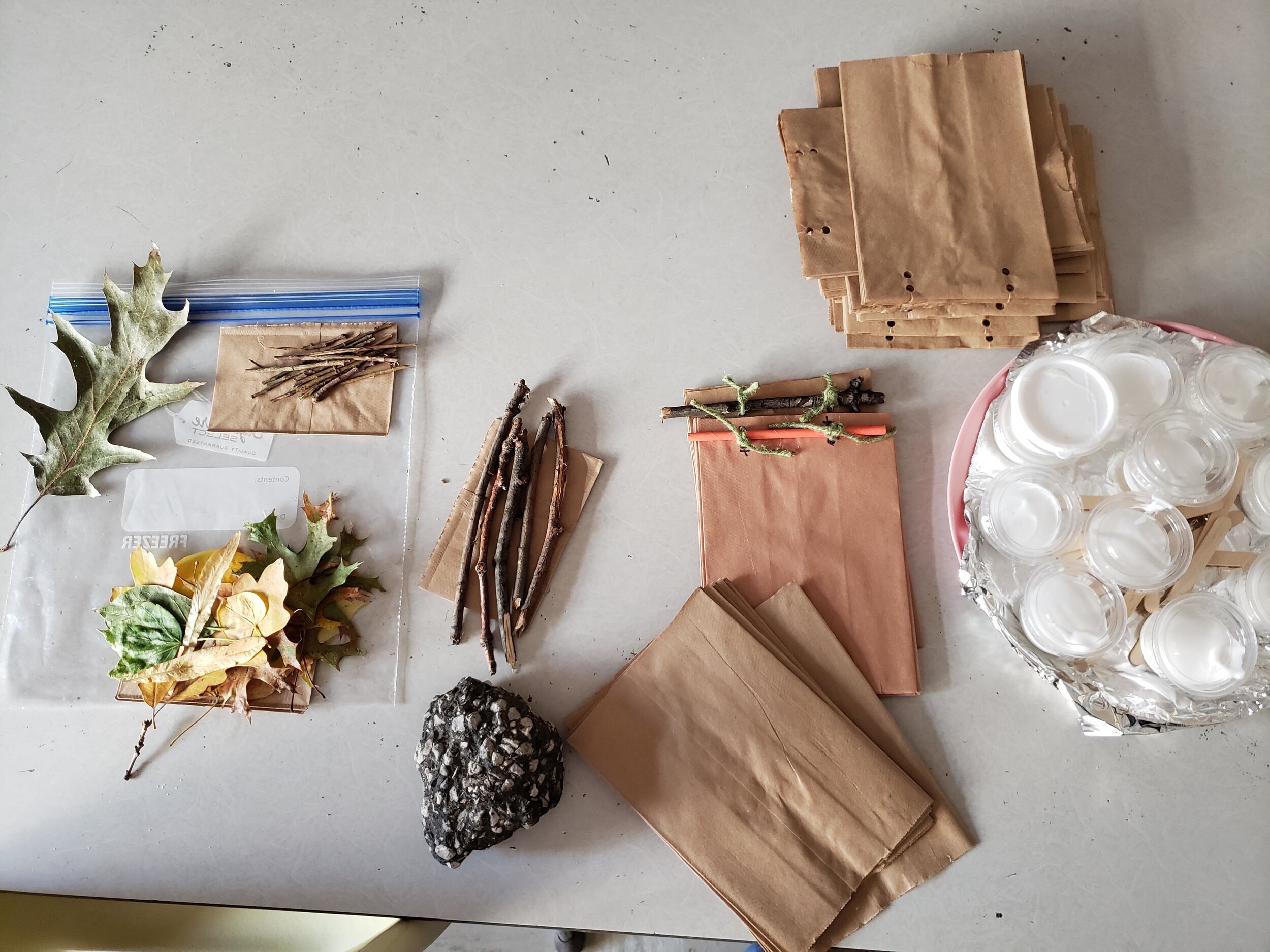
Approach & Principles
Play promotes key abilities that provide children a solid base for later school success including cognitive, physical, social and emotional growth. The child’s curiosity, creativity, confidence and initiative are encouraged and supported at First United Church Nursery School in an atmosphere of warmth and respect for each individual child. Interest centers are established in the classrooms to encourage children’s learning through investigation, exploration and problem solving, which all promote positive attitudes about learning.
Social and emotional development are promoted through the relationship with teachers and through the opportunity to be a contributing member of a group that plans, problem solves and enjoys shared experiences. There are many opportunities during the school day for interaction with other children, and in the process opportunities for growing in ability to share, take turns, communicate ideas, listen to others, and settle conflicts with words.
Most importantly, nursery school is a place to have fun with friends.
Both large and small muscle growth is promoted at nursery school. Physical coordination and large motor development are encouraged through participation in gym and outdoor activities. Small motor development is promoted through manipulation of a wide range of classroom materials.
Establishing positive attitudes about learning, including enthusiasm, engagement, confidence and joy, are goals of the program.
Approach
Our approach is centered around the following elements of our curriculum: play, social emotional learning, literacy, science, math, social studies, fine motor, music, creative art activities, construction, social dramatic play and large motor activities.
Play
Children find great joy in play and exercise their creative dispositions of imagination, curiosity and fantasy. Research shows that high-quality play supports children’s growth cognitively, socially and physically and provides a solid base for later school success. For instance, creativity and curiosity, both nurtured through open-ended play, are foundational for later success in areas such as math and science. Play gives children freedom to make choices, to negotiate with friends, to imagine, to explore, to learn through experimentation and to be actively engaged physically and mentally. Children have opportunities to play during Guided Choice Time and during Playground/Gym Time.
Social Emotional Learning
Much of the value of the preschool setting is the opportunity for young children to grow in skills of: sharing, taking turns, cooperating on projects, recognizing the feelings of others, respecting the rights of others and using words to resolve conflicts. Our teachers are skilled in guiding and supporting children in these areas. Additionally, the school setting gives children the opportunity to exercise independence, take responsibility for their belongings and help care for classroom materials. Our classroom routines and rules are minimal, but do provide an important framework and structure for the day. We support each child in being able to express their ideas, concerns and feelings.
Literacy
First United has a literacy-rich classroom environment. We have a wealth of books in the school library as well as throughout the classroom. Excellent children’s literature is read each day at group times or to individuals. Children also spend time looking at books individually. Phonemic awareness, alphabet awareness, book awareness (author, illustrator, title, beginning, middle, end, plot and characters) are all a part of group time discussions. Poetry, drama and conversations are also elements in the classroom that build children’s vocabulary and language skills. Children have many opportunities to express themselves verbally.
The classrooms are also “Print Rich.” There are writing centers in each classroom, where students follow the Handwriting Without Tears curriculum, teaching pencil grip, letter formation, and the literacy skills that are needed for print and cursive handwriting. Additionally, the Four Year Old Program offers story dictation experiences (as a group or individually).
Science
The children are encouraged to explore the world around them and are introduced to beginning science understandings. There are plants, animals, water and sand tables and interesting items from nature in the classrooms. Children are encouraged to observe, question, experiment, make predictions, determine cause and effect and actively engage in science discovery. The playground, the front yard of the church and local parks also afford opportunities for nature and science explorations. Many of the topics explored in classrooms have a science base – seasons, weather, insects, forest animals, sea life, plants, body parts, trees, etc.
Math
Children expand their understanding of numbers by using math in a concrete way in activities such as games, snack preparation, cooking, block play and play with math manipulatives. Classification, measurement, patterning, sequencing, one-to-one correspondence, understanding of numbers, counting and sorting are all elements of the math curriculum. Each of our classrooms is well-stocked with blocks; math manipulatives for sorting, classifying, counting and patterning; and board games. Math experiences are woven throughout the day in activities ranging from counting the number of children present, to measuring and recording on a chart the growth of the amaryllis plant, to creating a graph of the color of shoes children are wearing.
Social Studies
First United is located next door to the Oak Park Library, across the street from the Post Office, three blocks from the Fire Station, a block from two parks and in the midst of interesting architecture. Throughout the school year, classes explore the immediate community. We also use globes and maps to point out the places children visit and have them share things they see on their visits. Some of our children are from other countries and we enjoy learning about their customs, music and foods.
Fine Motor
The development of fine motor control is supported through multiple opportunities to use scissors, markers, small manipulatives, play dough, paint brushes and other play materials. Puzzles are an excellent choice for development of eye-hand coordination, as are activities such as bead stringing, lacing and stacking blocks. The classroom environment provides a multitude of opportunities for children’s growth in fine motor development.
Music
At First United we listen to music, we make music and we move to music. Basic rhythm instruments, movement, singing and an introduction to musical instruments are all components of the music experience at school. Music experiences are woven throughout the school day.
Creative Art Activities
Opportunities exist each day for the children to use paints, chalk, crayons, markers, glue, paper, wood and blocks. There is an easel in each classroom, an area where an array of art materials are available for creative use and a project table where teachers prepare a special art experience as an option during Guided Choice Time daily. The creativity that children bring to these areas of the classroom is valued and encouraged. At First United we value the process rather than the product.
Construction
A large supply of wooden blocks, other building materials and props are available in each classroom along with a rug area for building. This is generally a busy area of the classroom. Block building provides opportunities for creativity, science and math discovery, interaction with other children in planning, negotiation and imaginative play. Additionally, our gym has a large rug area and large size wooden blocks. The four/five-year-old classrooms have woodworking areas with real tools for construction projects.
Social Dramatic Play
A portion of the classroom is set up as a social dramatic play area. This is another active and busy spot in our classrooms. In this area, children have the opportunity to experiment with adult roles, to use language to plan and play together, to be imaginative and to have fun. Dress-up clothes, dolls and kitchen equipment stock this area. From time to time, this area of the classroom may be transformed into a doctor’s office, a grocery store, a forest, a space station, a castle or a cave. These changes of arrangement prompt fresh and exciting play.
Large Motor
Large motor development is important for the health and vitality of the children. Opportunities to play in the playground and the gym promote skills in running, jumping, hopping, galloping, balancing, climbing, pedaling, steering, throwing, kicking and catching. Additionally there is opportunity for group game playing, parachute activities and large block building.
Principles
First United Church Nursery School bases its philosophy of education and its curriculum and practices on Developmentally Appropriate Practice in Early Childhood Programs, a publication of the National Association for the Education of Young Children (Third Edition, 2009). This philosophy is based on teaching in ways that match the way children develop and learn.
Creative Curriculum is the curriculum model adopted by First United Church Nursery School. The classroom environment is organized around a topic of study. The topic can be prompted by children’s interest or that of the teacher. Generally a topic lasts for two to three weeks, but may develop into a project of longer duration. Many elements in the classroom are designed to support the topic, including group time discussions, books, science experiences, math activities, art activities, social dramatic play props, games and puzzles. Children become engaged in experimentation and discovery, build new understanding and vocabulary, represent their discoveries in art and writing, question, think and build confidence as a learner. We know that children learn best by active hands-on experiences and play. In play, children are free to try out new ideas and practice skills while having opportunities to interact with others and gain social competence.
First United is a joyful place! Some of our activities are done for the pure fun of doing them. We expect to hear chatter and laughter in our classrooms and see children excited about the things they are discovering and experiencing as a group.

